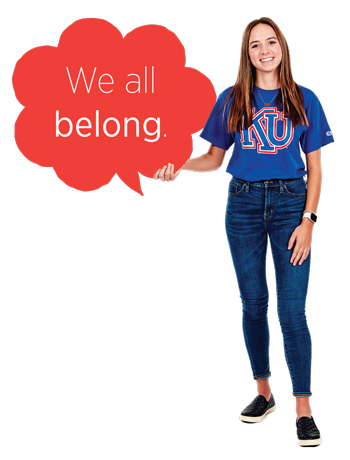KU Giving Magazine
Building a University of Kansas for ALL
Valerie Gieler
Advancing diversity, equity, inclusion and belonging takes many hands
To sustain excellence, institutions of higher learning cannot rest on the ideas, practices and successes of yesterday. The University of Kansas is no exception. KU reaffirmed its commitment to continual progress with the recently launched Jayhawks Rising strategic plan. The plan’s vision is “to be an exceptional learning community that lifts each other and advances society.”
In order to be an exceptional learning environment, the university believes it must lead among peers as a learning and workplace environment that is representative of our society, accepts and values everyone, appreciates our common humanity and recognizes our differences are the cornerstone of academic preparation and professional distinction. This purpose is at the core of KU’s Office of Diversity, Equity, Inclusion & Belonging, led by Interim Vice Provost D.A. Graham.

Leading with purpose
“KU is the flagship when it comes to educating Kansans and exporting this experience into the world,” Graham said. “That’s why leadership in diversity, equity, inclusion and belonging (DEIB) is so important, so we can stand in front of these issues rather than running behind them.”
The work related to DEIB never ends, but it can evolve. “Improving DEIB at the University of Kansas is one of 13 objectives of Jayhawks Rising,” Graham said. “The goal for the future is to not have DEIB as an objective, but for it to be infused in every area going forward — regardless if the objective involves research, retention and recruitment, student success or building healthy communities.”
KU has developed an organizational structure to align DEIB work across the university. There are now three assistant vice provost positions, one each for faculty, staff and students. Equity advisors (assistant/associate deans and vice chancellors) named by the university are part of academic and administrative leadership teams at the school and divisional levels. They will serve as advisors and develop programs and initiatives regarding DEIB for the schools and administrative units. “The plan is to cascade the work to allow more hands to do this labor,” Graham said.
Everyone can be involved in the effort by educating themselves about the important issues of what it means to be anti-oppressive, inclusive and equitable. The university and many campus organizations host regular activities, learning opportunities and professional development sessions on campus.
Considerations for health care
All KU campuses strive to align DEIB goals, strategies and educational programming. KU Medical Center Vice Chancellor for Diversity, Equity and Inclusion Jerrihlyn McGee, DNP, RN, CNE, also is a nurse and clinical associate professor in the KU School of Nursing. This experience contributes to her understanding of the need for DEIB in education and health care.
McGee is leading the effort to create an environment that is equitable where students, faculty and staff feel included. A primary goal is increasing the diversity of graduating classes and faculty with more representation of historically excluded groups, which could include people of color, individuals identifying as LGBTQIA+ and people with disabilities.






